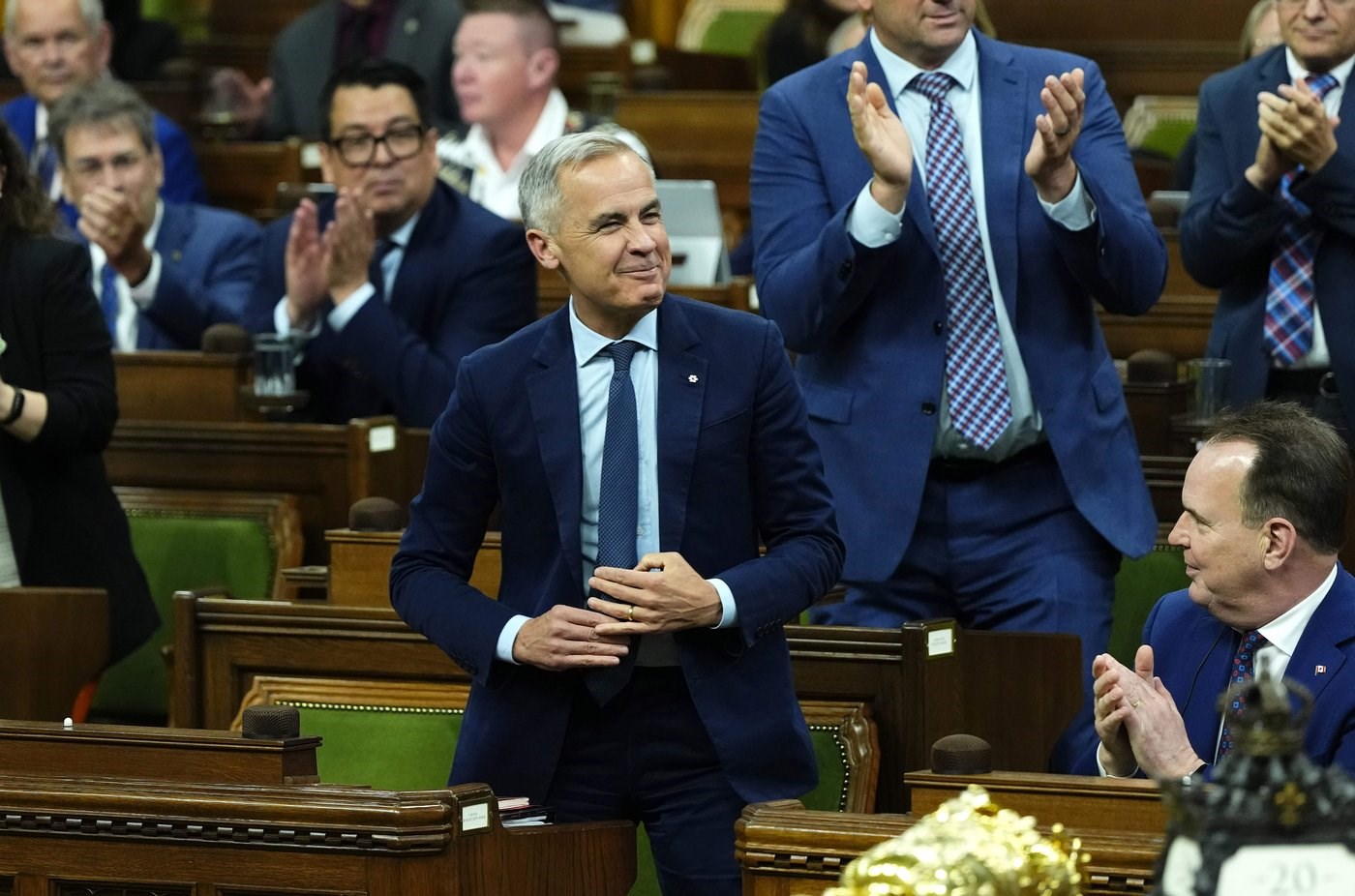
Prime Minister Mark Carney rises during a vote for Bill C-5 in the House of Commons on Parliament Hill in Ottawa, on Friday, June 20, 2025. THE CANADIAN PRESS/Justin Tang
Republished June 20, 2025 - 6:14 PM
Original Publication Date June 20, 2025 - 1:01 AM
OTTAWA — Conservative members of Parliament voted with the minority Liberal government to pass its marquee major projects legislation Friday evening, setting it up to become law before Canada Day.
The legislation, also known as Bill C-5 or the one Canadian economy act, would allow the government to green-light a list of projects that have been deemed to be in the national interest, fast-tracking their approvals.
The Liberals have called it the core of the government's domestic economic response to U.S. tariffs.
"This is what makes us different from the United States, this is what makes us more independent from the United States, this is what's going to move us forward," Prime Minister Mark Carney told a press conference Friday evening.
He defended the speed with which his government pushed the bill through the House, saying it needed to pass quickly "because we are in a crisis."
"And if you don't think we're in a crisis, go to Sault Ste. Marie, go to Hamilton, go to Windsor," he added.
The bill was introduced on June 6 and was pushed through the House after about eight hours of committee study on Tuesday and Wednesday.
After the second of two votes in the House of Commons on Friday, Carney crossed the floor to shake hands with Opposition House leader Andrew Scheer and Conservative deputy leader Melissa Lantsman.
Two votes were held instead of one after the House Speaker ruled that the legislation had two distinct parts without a clear common element.
That allowed Bloc Québécois and NDP MPs to vote in favour of the first part of the bill — which looks to tackle internal trade barriers — and against the more controversial second part dealing with major projects.
Provincial and territorial premiers have given the government lists of projects they want to see fast-tracked under the legislation, but no national list of projects has been created, Carney said.
"We all agree that more fulsome conversations are needed to select the nation-building projects and to determine the conditions that they must fulfil. In other words, the real work begins now," he said.
At least two premiers aren't seeing eye-to-eye on which projects should be fast-tracked. Alberta Premier Danielle Smith is bullish on building a pipeline through British Columbia, while B.C. Premier David Eby has pointed out that there is no project proponent or funding for a pipeline.
After a first ministers meeting on Friday, Eby said in a media statement that he impressed upon his colleagues how central his province is to achieving the premiers' priorities.
"As a gateway to growing markets in the Asia Pacific, any successful trade diversification strategy for Canada hinges on our success as a province. B.C. is the economic engine of the new Canada and must be treated fairly by Ottawa when it comes to infrastructure investment," Eby said.
Carney has said that his government will not force projects on provinces or territories that oppose them.
The legislation has drawn criticism from Indigenous leaders and environmental groups who say it gives too much power to the federal cabinet to bypass existing laws.
The House transport committee did amend the bill to, among other things, remove the Indian Act from a list of laws the government can sidestep when determining whether a project should move forward.
First Nations leaders have warned the bill could violate their constitutionally protected rights and may lead to legal challenges.
Carney tried to assuage some of those concerns in his press conference on Friday.
"The major projects office will have an Indigenous advisory council whose core function will be to honour Section 35 rights in the implementation of this bill," he said.
Carney promised to hold full-day summits with First Nations, Inuit and Métis rights-holders and leaders in the coming weeks, alongside Crown-Indigenous Relations Minister Rebecca Alty and Indigenous Services Minister Mandy Gull-Masty, along with other cabinet ministers.
"Consultation, co-operation, engagement and participation are at the heart of this bill," he said.
Alty said the prime minister's decision to hold those summits is a "serious sign" that Indigenous rights will be upheld.
The Canadian Chamber of Commerce applauded the bill's passage, saying in a media statement that it "rises to meet the moment" of the economic crisis caused by U.S. President Donald Trump's trade war.
TC Energy's president and CEO François Poirier called it "a bipartisan step forward for Canada to get back into the business of big nation-building projects," but added the country's regulatory framework is in need of reform.
Scheer, who spoke with reporters after the votes, said he and his colleagues supported the bill because "if there's even a glimmer of hope that something might come from this, then Conservatives aren't going to stand in the way."
"We'll see what happens now," he added.
The House of Commons has adjourned until September. The bill is now headed to the Senate, which is scheduled to sit until June 27.
— With files from Kyle Duggan and Alessia Passafiume
This report by The Canadian Press was first published June 20, 2025.
News from © The Canadian Press, 2025